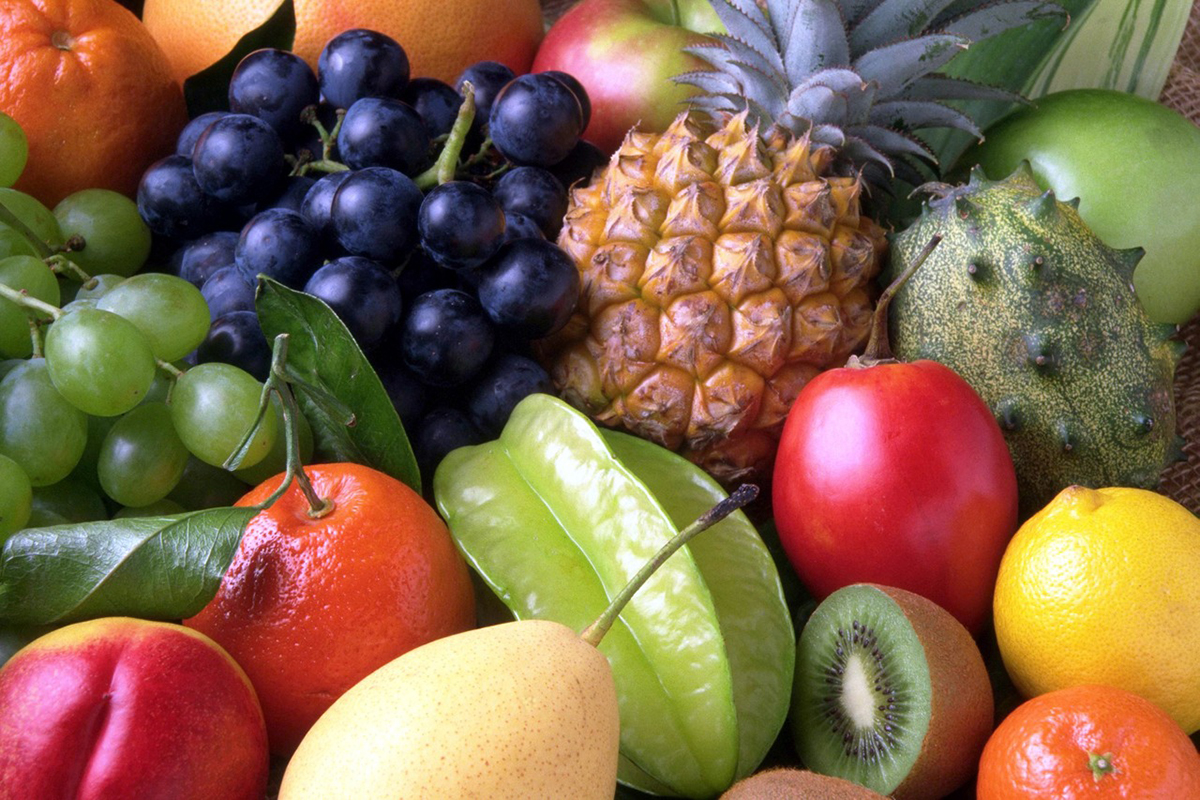How to lose weight while eating healthy

Achieving weight loss and well-being is exclusively possible through a nutritious diet. Individuals resorting to unhealthy methods to lose weight will inevitably experience a decline in energy and motivation to adhere to their dietary plans.
Furthermore, adopting a healthy eating pattern yields benefits beyond attaining a normal BMI. Consider the lighter sensation in your stomach, heightened mental alertness, improved focus, and reduced susceptibility to short-term and long-term illnesses.
Wondering how to approach healthy eating and lose weight specifically? Find practical tips in our guide below!
01. Not all calories are created equal
While each calorie provides the same energy, the nutritional content matters significantly. For instance, an apple, abundant in fiber, vitamins, and minerals, offers prolonged satiety compared to a sugary egg cake.
The fiber content in the apple reduces the likelihood of overeating, indirectly leading to fewer calories consumed. Additionally, the wealth of nutrients in the apple prevents potential vitamin and mineral deficiencies, which can otherwise contribute to increased calorie intake.

02. To lose weight gradual is recommended
For gradual and healthy weight loss, aim for a daily calorie deficit of no more than 500 kcal. For instance, if your daily calorie burn is 2000 kcal, consume at least 1500 kcal. Prioritize nutrient-rich, filling foods to avoid hunger.
Make a slight adjustment for those on extremely low-calorie diets. If consuming 1400 kcal per day, opt for a smaller deficit like 1100 or 1200 kcal. Eating fewer calories can lead to hunger, muscle loss, and nutritional deficiencies. Achieving the right balance of calories and nutrients is simplified with a personalized nutrition plan.
03. Avoid quick-fix diets to lose weight
While it may seem appealing to shed a few kilos in a short time, these diets often lead to dropout due to hunger and lethargy. Even if successful, returning to old eating habits typically results in regaining more weight than to lose weight. Opting for a sustainable approach with initial attention and awareness may require more effort but yields lasting and genuine results in the long run.

04. Create a vibrant rainbow salad
Say goodbye to mundane lettuce leaves; healthy salads can be delicious too. Diversify your base with lettuce, spinach, cabbage, and arugula. Incorporate various vegetables like grated carrots and cherry tomatoes.
Enhance the flavor with one or two pieces of fruit for sweetness and juiciness. Include savory elements like olives or sun-dried tomatoes. Finally, top it off with a sprinkle of nuts and seeds for a delightful crunch. Every bite offers a different taste! Keep your salads exciting by varying your vegetables, fruit, and protein source each week. This way, your salads become something to eagerly anticipate!
05. Keep sweets and snacks out of sight for a healthier lifestyle
Eliminate the temptation by hiding them or not buying them frequently. This simple strategy makes it easier to resist constant snacking, helping you maintain weight without unconscious overindulgence. If you crave a treat, make a conscious choice, purchase a single portion, and relish it guilt-free.

06. Dress it up
Sauces may contribute to weight gain, but it’s all about finding balance. A healthy salad can include a splash of extra virgin olive oil or a spoonful of healthy mayonnaise without harm, as long as overall calorie intake remains moderate.
Opt for lower-calorie options like yogurt dressings, mustard, or balsamic vinegar. The more robust or spicy the flavor, the less you need, allowing you to enhance your dish without venturing into the calorie danger zone.
07. Prioritize unprocessed foods for a healthy diet
Cultivating mental strength makes maintaining a healthy diet easier. Opt for unprocessed foods, as they have fewer calories and harmful substances, offering more vitamins, minerals, and fiber from plants. It will promote a natural balance, leading to quicker satiety, increased energy, and improved well-being.
This approach supports long-term health. While not advocating the complete exclusion of items like rice cakes, prioritize minimally processed or entirely natural products for healthier choices with fewer processing steps and ingredients.

08. Opt for exercising sober
Despite numerous fat-burning tips, few methods genuinely enhance fat burning, with fasted exercise ranking high. It not only serves as an effective fat-burning mechanism but is also notably healthy, promoting improved insulin sensitivity.
During fasted exercise, when muscles lack carbohydrate stores, the body turns to burning fat. A brisk morning walk serves as an ideal way to initiate fat burning, shake off sleepiness, and align with a healthy biorhythm. Enhance this by having a cup of coffee before your walk, further stimulating fat burning by mobilizing fatty acids for muscle use.
09. Fruit and vegetable juices
Opt for a tasty and healthy vegetable juice that provides a robust physical and mental boost for making nutritious choices. Ensure the juice is palatable, avoiding a blend solely of kale and broccoli. Include a piece of fruit like an apple or a touch of honey to add natural sweetness while still gaining essential vitamins and minerals.
Keep in mind that this small sweet addition won’t lead to a calorie surplus, especially when compared to past indulgences like chocolate on bread or donuts. Be mindful not to consume excessive fruit juice to avoid elevated sugar intake.

10. Opt for nutritious snacks
The notion that ‘snacking is unhealthy’ primarily applies to specific snacks like cookies, candy, and chips, which contribute unnecessary calories. However, healthy snacks are a perfectly reasonable choice.
Indeed, carefully chosen snacks can promote healthier eating. They not only deter binge eating but also offer additional nutrients often missed in main meals. Need more vegetables? Snack on cucumber and carrots. Require healthy fats? Grab a handful of nuts. It can be that straightforward!
11. Embrace carbs without fear
Carbohydrates often receive undue blame nowadays, with claims tying them to weight gain, low energy, and digestive issues. While excessive intake of fast sugars can be problematic, not all carbohydrates are culprits. Weight gain results from an overall calorie surplus, with contributions from fats and proteins as well. Blaming only sandwiches, pasta, and rice is oversimplifying the issue.
Opting for whole grain carbohydrates, however, poses no threat of sudden weight gain. Whole grain products, rich in fiber, promote prolonged satiety after meals. The key lies in adjusting carbohydrate intake based on your activity level. If you exercise minimally and aim for a healthy, weight-loss-oriented diet, reducing some carbohydrates may be necessary.
12. Don’t blame fats for weight gain
Fats often bear the blame for weight gain, mainly due to their high calorie content (9 kcal per gram compared to 4 kcal for proteins and carbohydrates). While fats theoretically contribute to a quicker calorie surplus, in practice, they play a crucial role in satiety, much like fiber. Attempting a fat-free diet can lead to increased hunger, making to lose weight more challenging or unsustainable.
Therefore, it’s advisable to include some fats in your diet, but in moderation. A good rule of thumb is around one gram per pound of body weight per day.

How to lose weight while eating healthy conclusion
In summary, adopting a healthy diet and losing weight is an optimal path to improve your well-being. Begin with the tips that resonate with you or seem most impactful for your health. If you’re eating healthy but not seeing weight loss results, it’s crucial to scrutinize your energy intake, and a healthy eating plan can help with this.



















